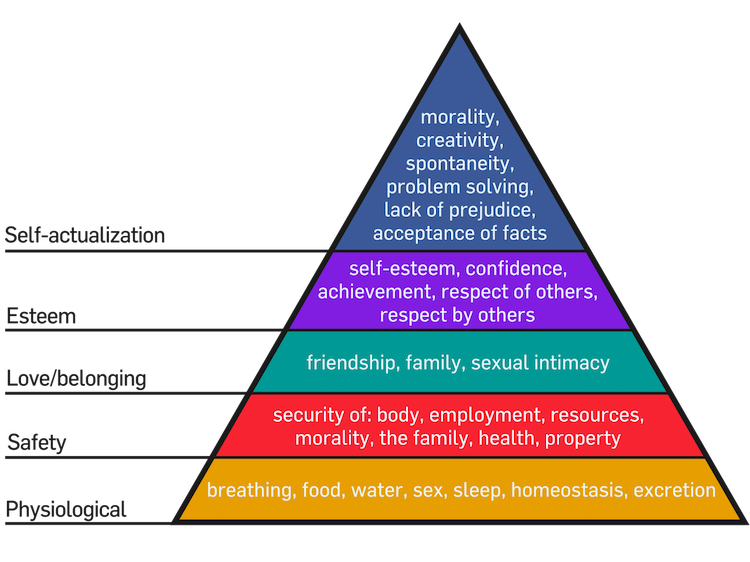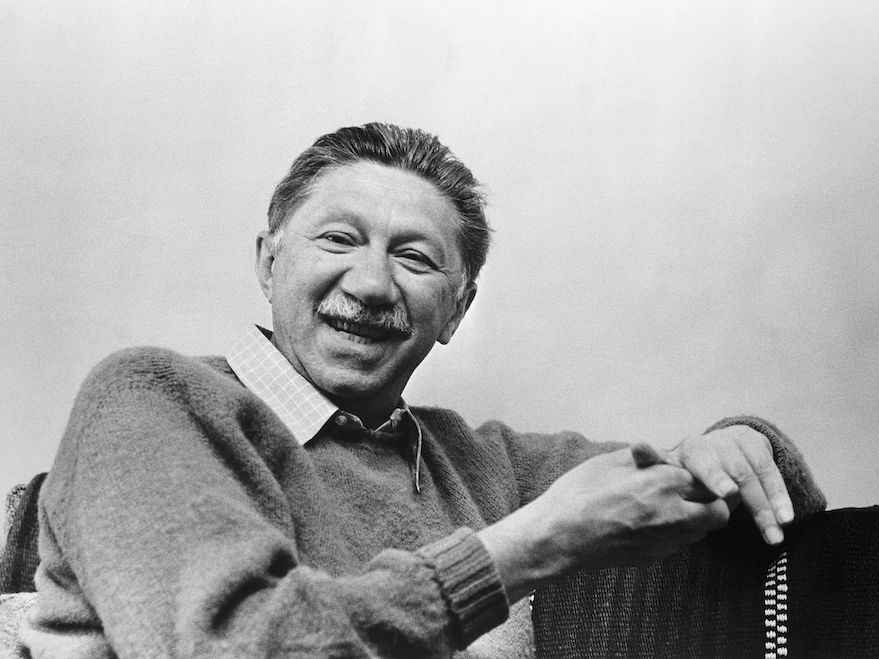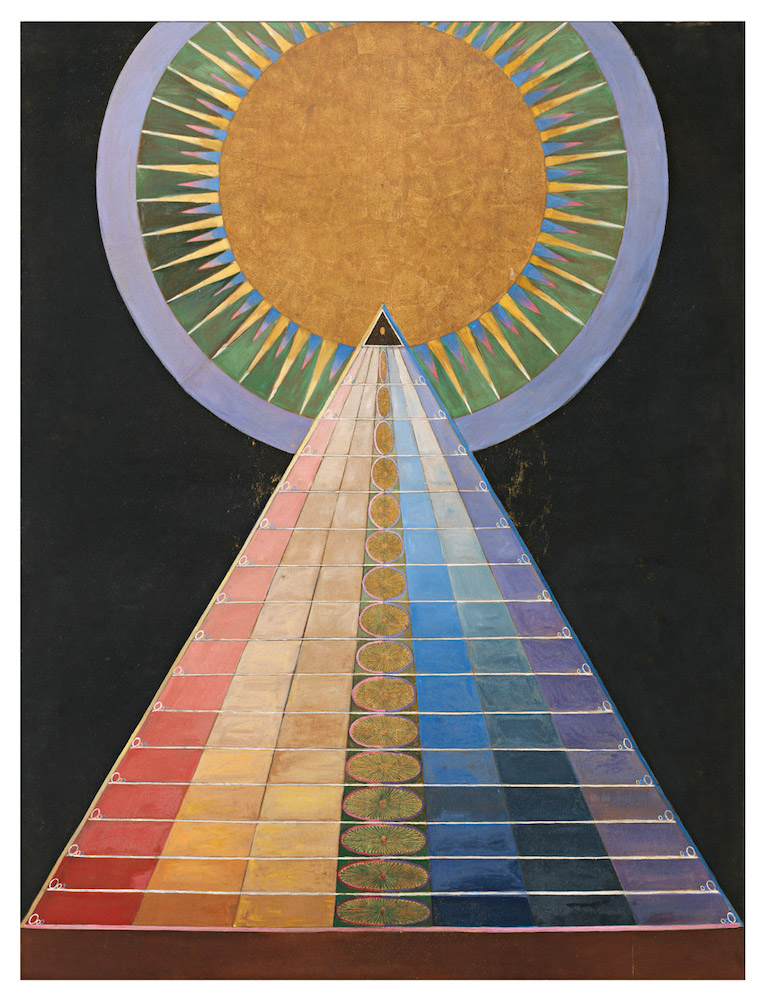
The moments of awe, peak experiences and accomplishing the best version of oneself
It is in human nature to aspire higher and “ human life will never be understood unless its highest aspirations are taken into account, ” said Abraham Maslow (1908-1970), renown with his triangle of hierarchical needs. At the peak of this triangle “ transient states of absolute being ” are experienced. It is “ where the farther reaches of human nature are secluded. ” He declared that a thorough understanding of the human being includes both security and belongingness needs as well as growth and transcendence needs. William James (1842-1910), the pioneer psychologist known with his studies in pragmatism and mystical experiences, marked the state of transcendence as: “ an experience of union with something larger than ourselves and in that union find our greatest peace. ”
In such a transcendent state, there is a gush of “ feeling complete unity with everything, including other humans, nature and the cosmos, ” said Maslow, echoing Einstein’s description of the cosmic feeling.

On the unattested borders of human potential, William James posed the challenging fact that
…compared with what we ought to be, we are only half awake…we are making use of only a small part of our possible mental resources…only exceptional individuals push to their extremes of use.
Maslow commonly observed the best version of oneself is attained at the peak of the triangle when pursuing self-actualization. The building block of the self at the peak is the purpose one crafts for himself which then becomes the central source of meaning and significance in one’s life. He explained :
We may define self-actualization as an episode, or a spurt in which the powers of the person come together in a particularly efficient and intensely enjoyable way, and in which he is more integrated and less split, more creative, more ego-transcending, more independent of his lower needs… is closer to the core of his Being.

He succinctly describes the self-actualizers :
Without one single exception, they are involved in a cause outside their own skin, in something outside themselves. They are devoted , working at something, something which is very precious to them – some calling or vocation in the old sense…which fate has called them to and which they love, so that the work-joy dichotomy in them disappears.
and pinpoints the most common features of the self-actualization :
- Seeking the truth beyond appearances
- Acceptance of one’s limitations
- Genuine desire and intention to help people
- Moments of awe
Maslow himself was mystified by the transcendent experiences recounted during moments of awe, This period coincides with the heart attack coupled with a mysterious illness he had in the latter part of his life which he reported as having experienced death. He thus pursued his research further to find out more about the triggers of awe and the sensations it brings upon the transcenders.
He asked the following question to the participants in the study :
I would like you to think of the most wonderful experience(s) in your life; happiest moments, ecstatic moments of rapture from being in love, or music, or suddenly “being hit” by a book or a painting, or from some great creative moment. Then tell me how you feel in such moments, how you feel differently from the way you feel at other times, how you are a different person in some ways at that moment.
Soon, he had amassed more reports on the mystical experience than any other psychologist since W. James. He was surprised to find that moments of awe occurred to a wide range of people rather than something that “ happened to one saint every century. ” They seemed to have many triggers in common – an excellent athletic or musical performance, a creative experience, an aesthetic perception, a momentary inspiration… which casted a glimpse of the truth, invoked insight and a deeper understanding.”
In moments of awe, one is in a state of complete absorption, instantaneously preserving a lucid awareness, s/he is surrendered to an empowering sensation of strong connection with core oneness.
Maslow features such moments as absolute being experiences where ordinary self-consciousness lifts, opening up a vast field of pure perception, free of time and space, wherein one feels being taken out of oneself, and arches over the borders of the ego. The sublime feeling of awe and oneness with the universe is all-encompassing. Cognitive distortions which are constructed to protect us from psychic pain are suspended. Lucidity reigns over the distortions and one has the chance to see a greater portion of the truth. The imaginary truths are quieted down.
The experience may not necessarily lead to a lasting perception of reality but nevertheless, Maslow noted that the effect is profound and transformative.

…the person is more apt to feel that life is worthwhile, even if it is wearisome, painful, or ungratifying; since beauty, meaningfulness and truth have been demonstrated to exist…the aftereffects can be likened to a visit to a personal heaven from which the person then returns to earth.
Maslow wrote his final reflections in his journal just before his death :
The very beginning, the intrinsic core, the essence, the universal nucleus of every known high religion has been the private, lonely, a personal illumination, revelation or ecstasy of some acutely sensitive prophet or seer. But it has recently begun to appear that these “revelations” or mystical illuminations can be subsumed under the head of “peak experiences” or “ecstasies” or “transcendent” experiences which are now being eagerly investigated by many psychologists.
He believed that the satisfaction of the meta needs are necessary to avoid illness and to attain fullest humanness or growth…They are worth living for and dying for. Contemplating them, or fusing with them gives the greatest joy that a human being is capable of.
He epitomized :
I can report that such peak experiences can occur at any place, at any time to practically any one…
While the word “sacred” often has religious connotations, one could have felt the sense of the word sacred – experiencing reverence, mystery, wonder, and awe – just about anywhere anytime.
The great lesson from the true mystics – from Zen monks, and now also from the humanistic and transpersonal psychologists – is that the sacred is in the ordinary, that it is to be found in one’s daily life, in one’s neighbors, friends and family, in one’s backyard.
Duygu Bruce
Reference Book used in this post : Transcend : The New Science of Self-Actualization, Scott Barry Kaufman







